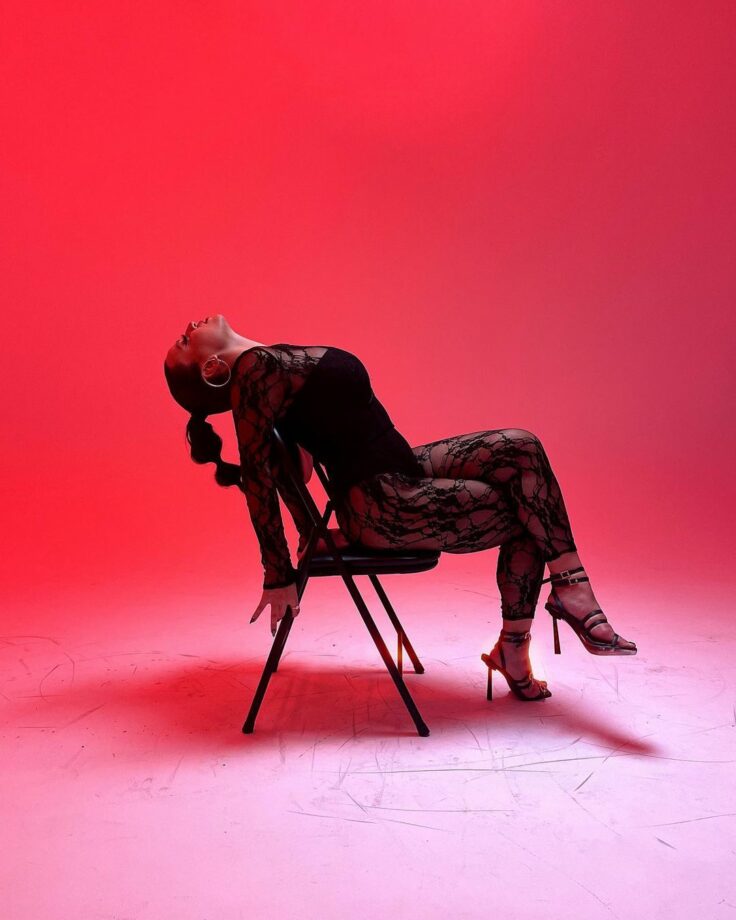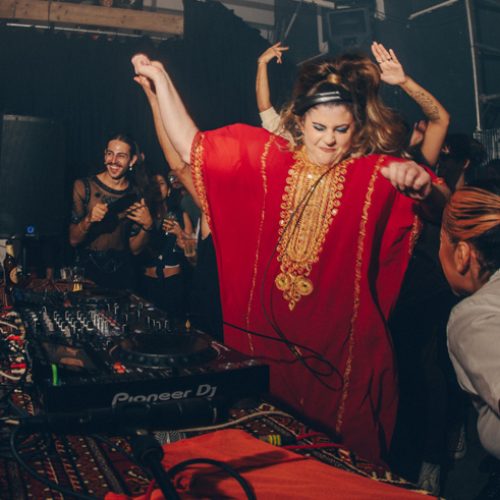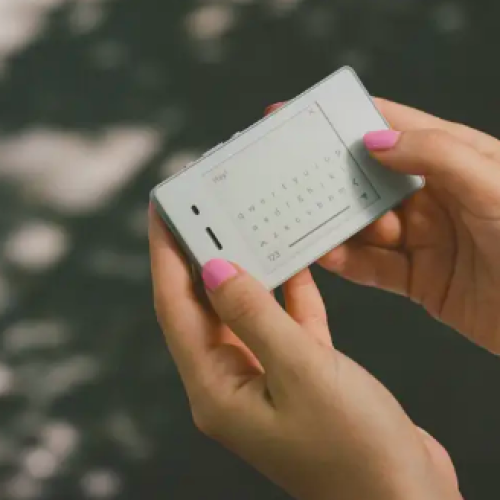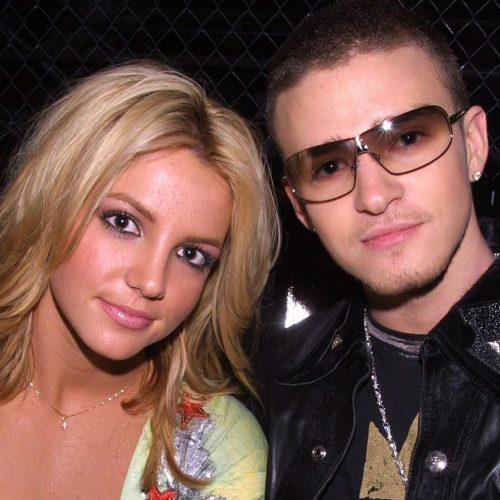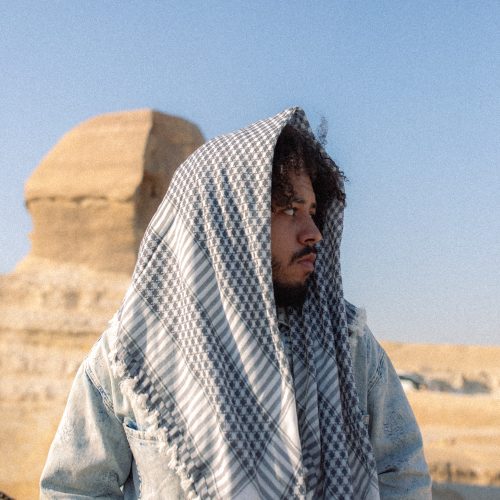Hundreds of miles away from the strife and struggle her native Beirut is currently experiencing, Lebanese pop singer and songwriter Roxane is a daring, bold, and fearless artist willing to take it upon herself, no matter the financial and moral cost, to make her presence noticed, her voice heard, and her message resonate. Born and raised in the Cedar State, the 27-year-old soloist has, unfortunately like millions of others, found herself having to forcibly expatriate to keep hope in the future being substantially better whilst making her dreams in the world of music come true.
“My relationship with Lebanon is quite difficult,” Roxane admitted to MILLE. “I do go there at least once a year, mainly because I still have family, but I’d say that my ties with Beirut and the country in general are just as complicated as anybody else’s. I don’t think I’m special in that regard. You love it and hate it at the same time, you want to live in it, and then you never want to see it again,” she continued before ironically comparing her hometown to a toxic ex you can’t help but still love.
In an ideal world, Lebanon would have never been confronted with one crisis after the other, reaching a near state of suffocation and plight due to political, economic, and social challenges that have plagued the nation for decades. And as long as the East Mediterranean country does not address the primary determinants that fuel these persistent issues, its journey towards stability and prosperity will remain a daunting uphill struggle while natives will constantly have to resort to traveling beyond the border of their nation in search of better opportunities and security elsewhere. Such was the case for Roxane who first sought refuge in Dubai, establishing a home and a safe space in the city where nothing is virtually impossible, nurturing her artistic aspirations far away from the turmoil she was once a part of.
“It’s not necessarily the fact that I left that hurts, it’s more the fact that I can’t come back that makes it worse,” the Dubai-based singer solemnly notes. “And that’s probably why I’ve always wanted to include my culture into my art in order to fill the void that was left in me. I feel like my first few releases didn’t necessarily reflect that as I still struggled with the language, especially when it came to finding the right lexicon to talk about the topics I wanted to discuss in Arabic,” she explained, revealing she wants to stray away from most narratives pushed forward in traditional and contemporary music from the region.
“No, I don’t want to talk about love; I don’t want to talk about heartbreak; and that’s basically all that’s ever been done. I want to do something different,” she playfully said, leaving the door open for these topics to maybe one day be touched upon in her lyrics; however right now, the focus is clearly being put on reconnecting with her roots, honing them, and unapologetically infusing her sonic crafts with the history and heritage that have shaped her identity and made her who she is today.
“Incorporating Arabic was definitely a journey,” she recalled, specifying that there has been a real shift among artists recently as they have collectively, at their own pace and in their own way, begun recognizing the significance of preserving and celebrating their linguistic and cultural roots by representing their singularities in every single one of their works. “The only way I could make sense of this sudden switch is that we’re all looking to belong, and we’re just grasping at straws to try to find a way to do so. With most of us being third-culture kids, we can admit that it played its role, or at least it did for me after I left Beirut. It was only after realizing that my life would not continue there that I started feeling the need for a link— and that link for me is Arabic,” she revealed.
Since making her first few steps in the industry, her debut and ensuing releases were almost exclusively harped in English, with the exception of a few lyrical references here and there. Now steering in the opposite direction to the one we got used to seeing her embark on, Roxane is peeling the curtain back on an untapped side of her creativity, one that is expressed in Arabic, packaged in a glitzy aesthetic, and coated in a feminist layer from its very core.
“It felt almost inauthentic for me to not try to write songs in Arabic because I do love the language, I love the culture, and I do feel like it’s a big part of me,” the Hezzi singer said of her new-found well of inspiration. “For me to reject that side, based on the supposed difficulty of it, or even the fact that I’m not very aligned with the culture, felt wrong— it’s still as much my language as it is to somebody else that relates more than me or aligns more closely,” she continued, emphasizing on the desire to reclaim her heritage despite what anyone thinks. That sentiment also goes for the women support women approach she has with music, which she strongly believes is an inherent and almost indissociable part of her sonic identity.
“When I think about who I want to be listening to my music, I want it to be anyone that feels the need to draw strength from someone or something else,” she said on her feminist tangent. “As much as I want people to shake their asses to my music— and I really want them to— I also want people to find a place to let go and release from their everyday marginalization; ultimately, I want people to feel free when pressing play,” she continued, revealing this particular edge to have stemmed from her own experiences, promising to never be complacent or passive to injustices, can they be gender-based or not.
As independent as one can be when navigating the industry of music, arts, and culture, Roxane showed no sign of reluctance to admitting to having a spiderweb of support that’s almost entirely comprised of members of her family who all happen to be involved in her journey with unwavering pride, using their own background behind a microphone, with a pen, or with an instrument to nurture her growth.
“I’ve recently been milking all of my resources. Picture this: for every single song on the EP, a member of my family has probably heavily contributed to it,” Roxane mused. “For example, my mom is a writer and a singer, she really has a beautiful way with words; my cousin is a translator; and then there’s another cousin who I just called to ask how to say ‘bad bitch’ in Arabic. It’s really fun to connect in that way, to find that creative magic,” she added, name-dropping her brother Antony Touma (a semi-finalist on France’s version of The Voice) as the executive producer of her first sonic statement, titled HARAM, which dropped last month.
“Literally, all of my family are musicians, however, only my brother and I have pursued music professionally,” she confessed, upholding her brother as somewhat of a role model despite some sibling rivalry between the two in the past. “It mainly came down to how people would perceive us and how they would always compare us as kids to each other, which was frustrating; I didn’t like only being seen as just Anthony’s little sister,” she continued.
As she relies on him and he relies on her, the singing siblings seem to be walking hand-in-hand in the same direction towards a shared musical fate that unfolds with every note and lyric. As the popstar in the making reflects on her relationship with her kin, Roxane revealed that the only element that remained from that childhood championship is the fact she “intentionally left out (her) last name out of (her) socials and (her) artist’s name.”
“I didn’t want people to associate me with him from the get-go, it would’ve been like re-living my childhood experience all over again. If people found out along the way that he’s my brother, I wouldn’t care, I’m proud to be his sister. But I just want to be able to stand on my own feet and be my own artist. That’s all I ever wanted.”
Slowly growing into the person she wants to be, by notably being meticulous with the image she reflects, the messages she sends, as well as the impact she leaves, the 27-year-old is not in any rush to clear-cut success, aptly applying the rule of practice makes perfect onto her habits which allows her to use her time as a canvas for refinement rather than a race for instant gratification— a logic she maintains when asked about the potential release of a debut album.
“I don’t have any immediate plans for an album just because I want to be more consistent with my work first. It’s such a body of work that I think that I can wait a little while longer for an album. Ideally, I would like to have more resources and more time,” she revealed. “Right now for me, I just want to try to release songs on a monthly or bi-monthly basis to try and put out as much of me as I can as to play live, I need to have a longer set and that’s my priority at the moment.”





